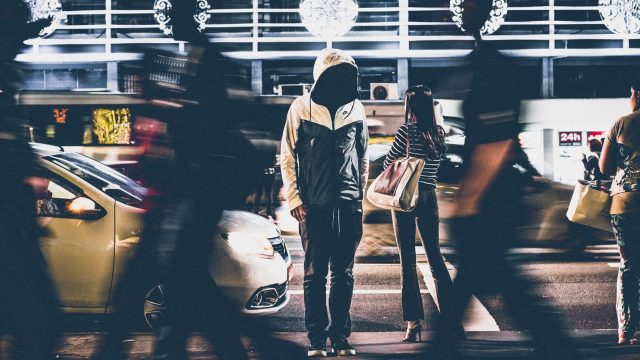
As we outlined in part 1 of this series, body brokering has been made illegal at the Federal level with the passage of the 2018 SUPPORT act. However, this bill contains an unfortunate loophole. This allows drug rehab centers to continue to use body brokering to recruit new patients into their facilities.
The 2018 SUPPORT for Patients and Communities Act allows for “certain payments to bona fide employees and independent contractors”. In this sense, eliminating kickbacks to just anyone off the street, like the drug rehab bounty hunters who were looking for kids and young adults with insurance coverage. Now the same people that brokered patients who were struggling with addiction, can become hired, (on salary) from a drug rehabilitation clinic. As long as they aren’t paid per head, there is technically not a “kickback” taking place. This is what is keeping much of the practice of body brokering alive and well in today’s drug rehabilitation industry.
As mentioned earlier, some of these “recruiters” are even licensed insurance agents and can sign you up for insurance if you don’t have coverage. Let me remind you that many of these people are not in the game to truly help people overcome their addiction. Maybe most of them really think that’s what they are doing. Maybe they think they are helping others, but when motivated by money and greed, the consequences of their actions can be deadly. Remember that to these businesses, relapse is much more profitable than sobriety and recovery.
This was a comment from a post on a private Facebook group. And yes, you read that right… A recruiter, who took a young woman out of state to a rehab facility, got her involved in the relapse to rehab shuffle, went to her funeral and did the same thing to others. This person ended up recruiting 5 more young addicts. Is this not madness yet? Why aren’t the insurance companies doing anything about this?
That’s a great question, that doesn’t have an answer yet. While some groups have organized, creating websites concerning ethics in addiction treatment, I can tell you that there definitely are ethical addiction treatment providers out there. I should know, I work with a handful of them.
When substance abuse treatment is provided with the best intentions, treatment does work. It can help people turn their lives around, but recruiters can be very persuasive with illegal inducements to re-enter treatment. This is a system that encourages people to inflict self-harm, relapsing just to restart their insurance coverage.
This happens all the time, someone who is in recovery goes to a 12 step meeting as a method of continuing aftercare upon the completion of their drug rehabilitation program. Many addicts graduate the treatment program and begin staying at sober living homes. Or, they relapse and enter the drug rehab shuffle at the beginning again, going through detox, inpatient rehab then on to a sober living home. Sometimes this cycle repeats indefinitely.
Some unscrupulous marketers will attend 12 step meetings regularly and try to talk people into either relapsing for treatment or entering their sober living home. Since they are bona fide employees of the company, technically, their work doesn’t produce a “kickback”. Many recruiters are paid salary because that’s just how you get around the law.
Since I don’t personally know any rehab recruiters, I can only assume that they have monthly quotas to meet. A certain number of heads to fill the beds at the rehab facility, otherwise, they’d be fired for not producing results. With the average client bringing in roughly $800 per day, the stakes are high. So, how does the $35 billion dollar a year addiction treatment industry keep growing for its investors? By finding more and more people who need treatment.
With drug addiction rates and drug overdose deaths skyrocketing in the United States, the market is definitely there. Drug rehab has even (inadvertently) created its own lifestyle around their existence.
Many drug rehabilitation centers around the US are rapacious. Most business entities are. It’s the nature of capitalism after all. That’s how jobs are created, so our economy keeps growing and moving forward. In healthcare enterprises, this frequently creates an incentive for putting profits above the needs of people. Unfortunately, this is precisely what happened to the addiction treatment industry, in a very short amount of time.
New patients to drug rehabilitation centers typically enter treatment, because they want to get better. In places like Florida and California, (where most of the nation’s rehab centers are located) the need to find new patients became urgent. Body brokers and rehab recruiters began offering inducements to people from out of state that needed treatment. They would buy the airline ticket or arrange travel to their rehab facility, completely free to the patient.
At first, this seems like a wonderful opportunity for the patient - to finally have access to treatment. It also offers them a chance to escape their daily routine, so they can focus on recovery. This is all fine and dandy until their insurance coverage runs out. Many of these patients get kicked out of rehab, onto the streets, with no money and no return ticket home. Many become homeless and begin to use drugs again. They know if they go out and get high, they can become eligible for treatment again, and thus, the rehab shuffle begins.

Many young addicts are lured into a revolving door of addiction treatment and sober living arrangements by drug rehab recruiters.
For many young adults in the US, rehab has become an alternative to homelessness. Rehab is also an alternative to working some shitty fast-food job, where you barely scrape together enough money every month to eat and pay for rent. Economic opportunity for young people in this generation isn’t the same as it was for their parents. Rent is astronomically high right now. College tuition has increased by an average of 234% since 1990. Hell, even if you go to college, it is still hard to find a decent paying job.
It seems that the odds are not stacked in your favor. With the lack of economic opportunities for today’s youth, it’s no wonder why so many of them end up depressed while turning to drugs and alcohol to self-medicate their inherent feeling of hopelessness.
Once a kid enters a drug rehab facility, seeing how easy it can be, it’s hard for them not to crave the ease of being institutionalized. Body brokering exasperates that desire for many young adults, offering them "the easy life" through inpatient rehab. This is where all of your basic life’s needs are met, while your parent’s insurance policy covers the bill. That is until your benefits run-out, or you turn 26 and are kicked off of your parent’s insurance plan. Sadly, a lot of young adults find themselves in this situation: homeless, unable to find a job, and addicted to drugs. It’s undeniable that this relapse-to-rehab-shuffle has greatly contributed to the growing homeless populations in many American cities.
You can read part 3 of our expose' here:
https://strugglingwithaddiction.com/2019/03/10/drug-rehab-marketing-recruiters-body-brokers/